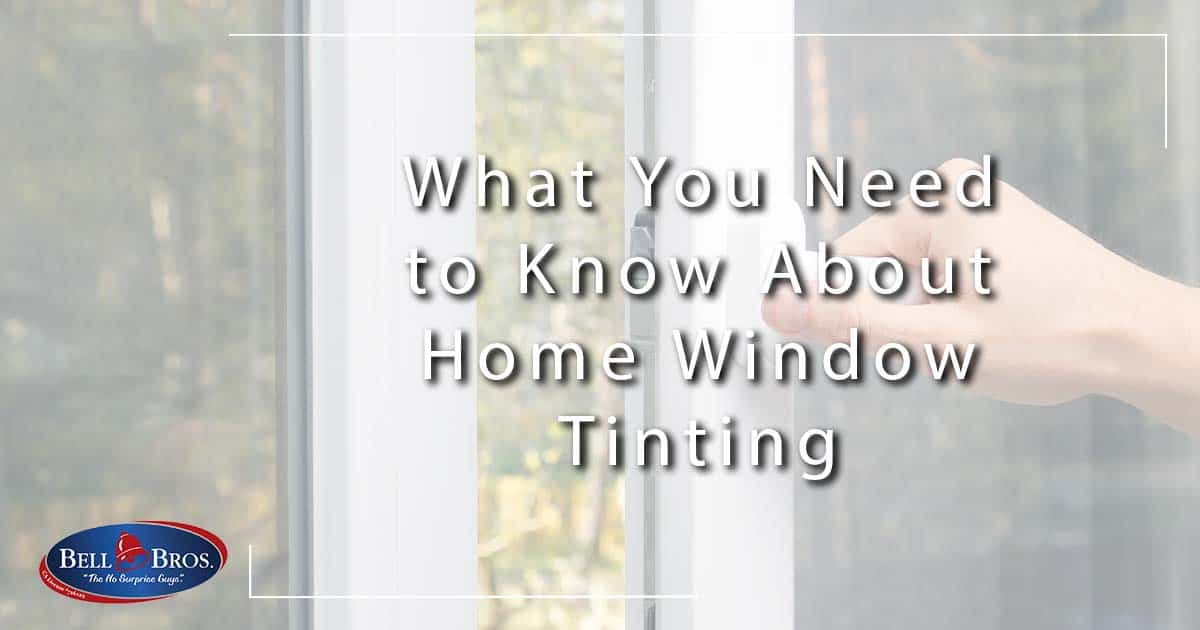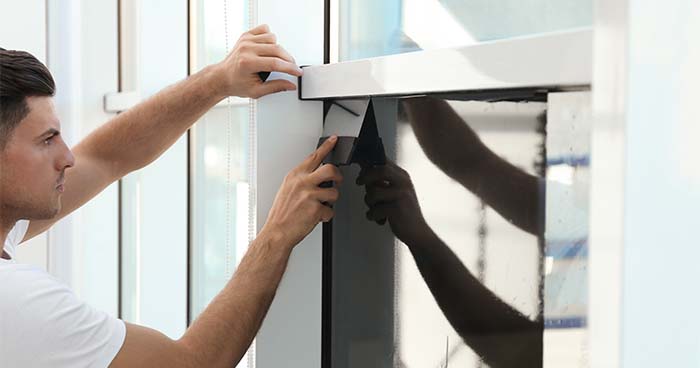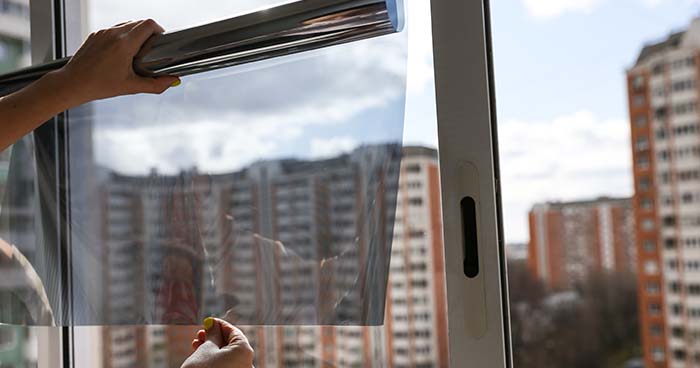What You Need to Know About Home Window Tinting

Living in a hot climate like Sacramento can drive up your energy costs. If your air conditioner is running all the time, window tinting can offer a quick and easy solution to improve energy efficiency and privacy.
Here’s what you need to know about home window tinting from the experts at Bell Brothers Sacramento.

Types of Home Window Tinting
Not all window tint is created equal. Different window tints offer different benefits and drawbacks. Here are the main types of window film.
Solar
Solar is often recommended if improving energy efficiency is the primary reason for tinting your windows. It’s thicker than decorative film but thinner than security film and it reflects or absorbs up to 99% of UV rays from the sun. This regulates the temperature in the room, leaving them cool in the summer and warm in winter, prevents the fading of furniture and flooring, reduces glare, and improves efficiency and comfort. Most solar tint is sold in neutral tones, such as copper and silver.

Security
If your biggest reason for tinting your windows is to deter burglars or reduce storm damage, security film is the best option. Security films are typically clear or silver and they’re the thickest of all the window tints. They don’t absorb or reflect heat, and in the event of a disaster or home invasion, they prevent the window from shattering completely. The window can hold out longer and you won’t deal with dangerous shards of glass all over your floor.
Decorative
Decorative window film is more for ornamental purposes than efficiency or security. Though it does absorb or reflect heat, it’s mainly intended to add privacy to a room or make your home more aesthetically pleasing. Decorative film is typically clear or boldly colored and features etched patterns, stained glass designs, or frosted designs.
Pros of Tinted Windows
There are numerous advantages to window tint. The biggest one is that it’s an economical solution to improving your home’s efficiency or security. Window film is easy to find at a home improvement center and only costs a few dollars a square foot.

Even with professional installation, it’s only a few dollars extra to ensure that it’s done right. Overall, this is much cheaper than other window treatments, such as solar screens or cellular shades that can cost hundreds. It also translates into big savings on your energy bills and saves wear and tear on your air conditioner.
Depending on the tint you choose, you could enjoy benefits like daytime privacy, skin protection from UV damage, and fading or discoloration of your furniture, paint, and flooring. With security film, your window tint can discourage break-ins and lowers the risk of the glass shattering during a storm.
Cons of Tinted Windows
Though tinted windows are a practical and inexpensive retrofit for your home, they do have some disadvantages.
It’s important to check your window warranty before installing window tint. Some homeowners report damage to their manufacturer only to find that installing the film invalidated the warranty. This is because some types of window film can damage certain window glass, so it’s important to determine if your desired window tint is compatible with your current windows and warranty.

You should also check with your Homeowners’ Association. Some HOAs prohibit changing the look of the glass from the outside.
Finally, if you’re doing the job yourself, you could end up with a less-than-polished result. It’s easy to get wrinkles or scratches in the film that leave it looking unsightly. In addition, you could make the mistake of installing the wrong film on the wrong glass, leaving you vulnerable to more issues in the future.
Window Tinting Maintenance
If properly installed and maintained, window film can last 15 to 25 years. It’s less porous than glass, so it doesn’t get dirty or grimy as quickly.
You must maintain your window tint properly, however. Here are some ways to ensure longevity:
- Use a soft sponge instead of paper towels
- Squeegee extra water and polish with a lint-free microfiber cloth
- Avoid abrasive chemicals and opt for natural cleaners like dish soap
- Let the tint cure fully before washing
- Apply silicone polish once a year
Always Hire a Pro
You can install window film yourself – it even comes with instructions. The task is simply enough, but it’s also really easy to make mistakes that ruin the look of your tint and waste your time, money, and effort.
If you don’t clean the windows thoroughly or install it correctly, the tint can have scratches, wrinkles, or bubbles. You also have to know what type of film is best for your windows and your desired results, which isn’t always easy.

For this reason, many homeowners prefer to get professional window film installation for a polished finish and flawless installation.

